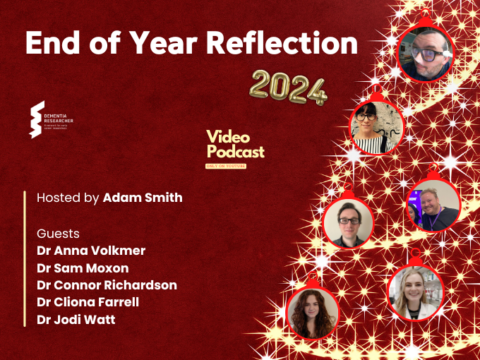A new paper published by Dr Diana Karamacoska et al. explores how early career dementia researchers considered and supported by national dementia plans and dementia-specific charities and associations? An overview of global policy approaches.
 Early career dementia researchers (ECDRs) represent a crucial workforce to drive dementia research. Many charities, research leaders, and pressure groups, along with people living with dementia, continue to advocate for greater investment in dementia research. It remains unclear how ECDRs are being supported in this push for research through top-down policy approaches. This study aimed to understand how ECDRs are considered and supported by national dementia plans or strategies across countries, and dementia-specific charities and associations.
Early career dementia researchers (ECDRs) represent a crucial workforce to drive dementia research. Many charities, research leaders, and pressure groups, along with people living with dementia, continue to advocate for greater investment in dementia research. It remains unclear how ECDRs are being supported in this push for research through top-down policy approaches. This study aimed to understand how ECDRs are considered and supported by national dementia plans or strategies across countries, and dementia-specific charities and associations.
Method
Forty-six countries from the G20 member states were evaluated. Each country’s dementia plan or strategy was reviewed alongside the policies of one governmental and one non-governmental funding body. Data were gathered through internet searches and information requests to contacts at relevant organisations in each country. Data targeting support for ECDRs were extracted and subject to content analysis using inductive coding. Findings regarding ECDR support were categorised and narratively synthesised.
Result
Despite efforts to contact stakeholders directly, little to no information could be obtained from some countries due to language barriers. While most G20 member states have a national dementia plan or strategy, only China, the U.S. (excluding Puerto Rico), England, Scotland, Greece, and Denmark specifically mentioned ECDR support in their national policy, referring to creating specific ECDR funding and career opportunities. Thirteen countries were identified as providing targeted support for ECDRs via dementia-specific charities or associations. This ECDR support reflected the following four categories: (1) research funding, such as fellowships and research grants; (2) research dissemination and networking, e.g., grants for printing a doctoral thesis or conference travel grants; (3) training and career development opportunities; and (4) research advice, including mentoring programs and grant writing assistance.
Conclusion
ECDR support varied greatly across the G20 member states, with few formally recognising ECDRs in their national dementia plan or strategy, and mixed support provided by dementia-specific charities and associations or government bodies. Overall, ECDRs were not considered in dementia plans and strategies in the majority of included countries, and discrepancies between support levels exist across countries. To facilitate equal prospects for ECDRs, top-down policy approaches are urged to enhance their efforts in the future.
Read the Full Paper – Open Access

 Print This Post
Print This Post





